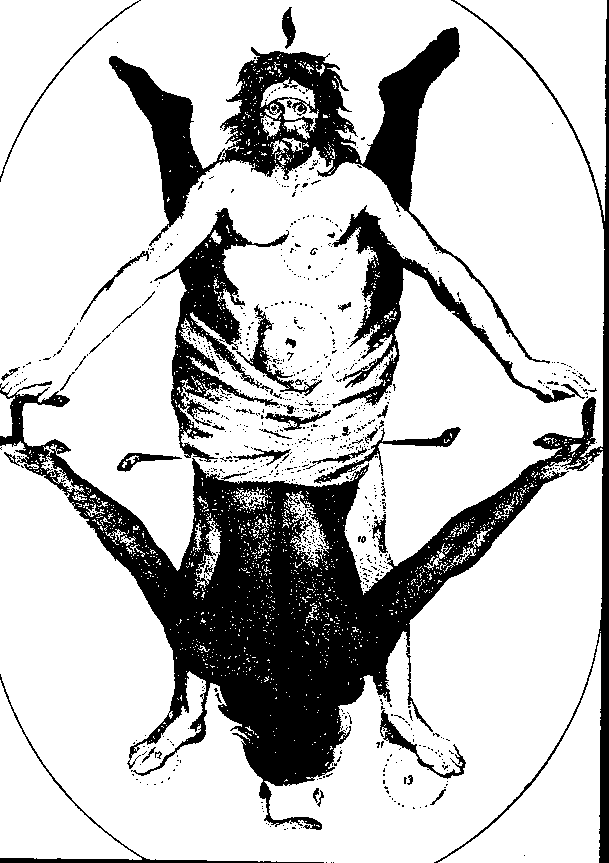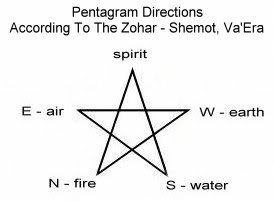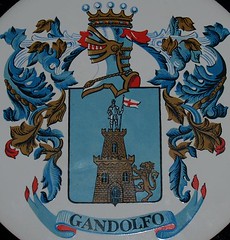RE: Zohan and Baal~ just in case ya cared
----------------- Bulletin Message -----------------
From: FREE? *READY*
Date: Aug 28, 2008 4:39 PM
I had a question about an image on my page. it is of Zohar, not Baal
The Zohar (Hebrew: זהר, lit Splendor or Radiance) is widely considered the most important work of Kabbalah, or Jewish mysticism. It is a mystical commentary on the Torah (the five books of Moses), written in medieval Aramaic. It contains a mystical discussion of the nature of God, the origin and structure of the universe, the nature of souls, sin, redemption, good and evil, and related topics.
The Zohar is not one book, but a group of books; these books include scriptural interpretations as well as material on theosophic theology, mythical cosmogony, mystical psychology, and what some would call anthropology.


"And the Lord said unto me, A conspiracy is found among the men of Judah, and among the inhabitants of Jerusalem . . . For according the number of thy cities were thy gods, O Judah; and according to the number of the streets of Jerusalem have ye set up altars to that shameful thing, even altars to burn incense unto Baal Therefore pray not thou for this people, neither lift up a cry or prayer for them: for I will not hear them in the time that they cry unto me for their trouble." (Jeremiah 11:9, 13-14)

interesting to read
http://www. jesus-is-savior. com/False%20Religions/Illuminati/illuminati_exposed. htm
this is who BAAL is

Ba'al (pronounced: [baʕal]; Arabic,بعل; Hebrew: בעל) (ordinarily spelled Baal in English) is a Northwest Semitic title and honorific meaning "master" or "lord" that is used for various gods who were patrons of cities in the Levant, cognate to Assyrian Bēlu. A Baalist means a worshipper of Baal.
"Ba'al" can refer to any god and even to human officials; in some texts it is used as a substitute for Hadad, a god of the rain, thunder, fertility and agriculture, and the lord of Heaven. Since only priests were allowed to utter his divine name Hadad, Ba'al was used commonly. Nevertheless, few if any Biblical uses of "Ba'al" refer to Hadad, the lord over the assembly of gods on the holy mount of Heaven, but rather refer to any number of local spirit-deities worshipped as cult images, each called ba'al and regarded in that context as a false god.
as far as I can tell they are not cool or friends to me ;]
From: FREE? *READY*
Date: Aug 28, 2008 4:39 PM
I had a question about an image on my page. it is of Zohar, not Baal
The Zohar (Hebrew: זהר, lit Splendor or Radiance) is widely considered the most important work of Kabbalah, or Jewish mysticism. It is a mystical commentary on the Torah (the five books of Moses), written in medieval Aramaic. It contains a mystical discussion of the nature of God, the origin and structure of the universe, the nature of souls, sin, redemption, good and evil, and related topics.
The Zohar is not one book, but a group of books; these books include scriptural interpretations as well as material on theosophic theology, mythical cosmogony, mystical psychology, and what some would call anthropology.


"And the Lord said unto me, A conspiracy is found among the men of Judah, and among the inhabitants of Jerusalem . . . For according the number of thy cities were thy gods, O Judah; and according to the number of the streets of Jerusalem have ye set up altars to that shameful thing, even altars to burn incense unto Baal Therefore pray not thou for this people, neither lift up a cry or prayer for them: for I will not hear them in the time that they cry unto me for their trouble." (Jeremiah 11:9, 13-14)

interesting to read
http://www. jesus-is-savior. com/False%20Religions/Illuminati/illuminati_exposed. htm
this is who BAAL is

Ba'al (pronounced: [baʕal]; Arabic,بعل; Hebrew: בעל) (ordinarily spelled Baal in English) is a Northwest Semitic title and honorific meaning "master" or "lord" that is used for various gods who were patrons of cities in the Levant, cognate to Assyrian Bēlu. A Baalist means a worshipper of Baal.
"Ba'al" can refer to any god and even to human officials; in some texts it is used as a substitute for Hadad, a god of the rain, thunder, fertility and agriculture, and the lord of Heaven. Since only priests were allowed to utter his divine name Hadad, Ba'al was used commonly. Nevertheless, few if any Biblical uses of "Ba'al" refer to Hadad, the lord over the assembly of gods on the holy mount of Heaven, but rather refer to any number of local spirit-deities worshipped as cult images, each called ba'al and regarded in that context as a false god.

as far as I can tell they are not cool or friends to me ;]



0 Comments:
Post a Comment
<< Home